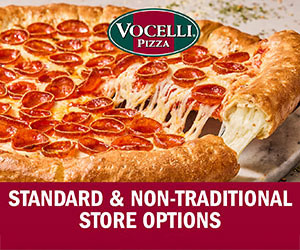Multi-Unit Programs: Attracting Experienced Franchise Operators
Many franchisors lust for experienced multi-unit franchisees to buy their concepts. These seasoned business builders manage and operate their own units (not to be confused with area developers, who sell and support franchisees in defined territories). Multi-unit operators have the management expertise, infrastructure, and track record for building successful franchise businesses. The risks, training, and operational support required from corporate are often less costly, and market expansion significantly accelerated. What does it take to capture a growing multi-unit or multi-brand owner successfully operating 15 to 100 franchise locations? When you look around and see that Burger King, Choice Hotels, Dunkin' Donuts, SuperCuts, and Qdoba are doing it, the question is "Why can't I?"
Multi-unit franchisees discussing business sound a lot like stockbrokers strategizing with clients about their portfolios. These high achievers seek opportunities to keep building and growing for numerous reasons: they have saturated their market with an existing brand; they want to spread their investment risks among several concepts; they seek franchises to generate income on their real estate properties; they are developing multiple franchise locations for future acquisition by investor groups. So how do these "mega" franchisees build their brand portfolios? How do they shop for new brands? What components of a franchise system do they look at? What type of research do they conduct? What turns franchisees off to franchises they are exploring?
Here's what some big guns of franchising say. At a Multi-Unit Franchising Conference produced by Franchise Update Media Group, I had the opportunity to interview a focus group of six prominent, multi-concept veterans. Together, they represented more than 25 franchise brands and 1,000 operating franchises in the U.S. These were truly builders of America's franchises, spanning industry sectors from hotels and fast food to tanning salons. These seasoned pros offered the following suggestions for recruiting multi-unit operators:
- A "one size fits all" mentality doesn't work. These are professionals at building franchise operations, devoting serious investments and resources to build out their markets. Make sure you structure agreements recognizing that these are experienced operators. Consider allowances that acknowledge and address this larger business relationship, its short- and long-term benefits and challenges.
- Experienced franchisees read and understand your FDD. There's no use trying to dance around items and conditions that have open interpretations. Tell it straight and clarify everything in writing. Mature buyers quickly pick up on restrictions and procedures not typical in other franchise documents. They also applaud the more favorable elements you offer. Study your agreement language so you clearly understand what it all means. Too often franchise CEOs can't tell you, and call legal counsel to unravel the confusion. This may not present you in the best light with these educated prospects.
- Sophisticated buyers scare easily from agreements that heavily favor the franchisor. Multi-unit operators seek healthy and balanced relationships. Be prepared. You may get away with non-reciprocal indemnification with franchisee neophytes, but you can hit concrete walls when you deal with these savvy buyers.
- ROI is key to their decision. If the business model doesn't fit their requirements or work within their infrastructure, experienced operators will pass. Be prepared to address this so these buyers can build pro formas to properly assess your opportunity. If your franchise can't produce the returns, don't waste time and money in wooing multi-unit pros.
- Decisions are based on logic. They are driven by your business model, not by the emotion and romance that often attract single-unit buyers. They want earnings claims from you and your multi-unit franchisees. They'll seek out your top producers who can openly share key metrics and performance factors to help them evaluate your brand. They will dig deep and expect direct answers to satisfy their decision-making process.
- Demonstrate your commitment to multi-unit development. Do you consistently market in the publications, shows, and other venues multi-unit owners frequent? Do they read and hear success stories about your multi-unit partners? Is your brand name recognized enough in their world to make their "check you out" list? These mega-owners stress the need for franchisors committed to a multi-unit development strategy that is ready to go, and not just testing it out as a new expansion method. Sticking your toe in the water with this crowd doesn't work, and word spreads fast.
- Multi-unit conferences require a different recruiting approach. Relationship-building and networking at these events produce the best results. Unlike public franchise exhibitions, these aren't mom-and-pops stuffing their bags with your literature. Don't expect herds of enthusiastic attendees completing your inquiry forms, or long in-depth conversations. Experienced operators are low-key, analytical, and cautious in expressing interest. Put yourself in their shoes. They know they're recruitment targets and move under the radar screen. Recognize this as you answer their questions and stay away from canned sales pitches.
- "Mega" franchisees rely on referral networks. They keep their antennae up, checking with savvy franchisees, franchisors, consultants, and investors who know what's hot and what's not in the franchise community. Get your word on the street through your influential contacts, including any suppliers that service expanding multi-brand operators.
- The multi-unit investigation process is much longer. Be patient if you are new to selling this market. The significant investment by both franchisee and franchisor requires a different recruitment process. Timing, competing concepts, business analysis, and negotiations all are factors affecting the closing period. These are not formula sales. Certainly no 90-day deals here. It could take nine months to two years!
- Multi-brand owners may want a "test" location first. This initial step makes sense in hammering out large deals with experienced operators. Both franchisee and franchisor want to ensure a successful launch, and they may begin with one unit. If both parties are satisfied with initial performance levels at the beta site, the franchisee then signs up for an agreed-upon commitment to roll out the market expansion.
This is an excerpt from my Amazon.com best-selling book, "Grow to Greatness: How to build a world-class franchise system faster." To order copies, click here.
Share this Feature
Recommended Reading:
| ADVERTISE | SPONSORED CONTENT |
FRANCHISE TOPICS
- Multi-Unit Franchising
- Get Started in Franchising
- Franchise Growth
- Franchise Operations
- Open New Units
- Franchise Leadership
- Franchise Marketing
- Technology
- Franchise Law
- Franchise Awards
- Franchise Rankings
- Franchise Trends
- Franchise Development
- Featured Franchise Stories
| ADVERTISE | SPONSORED CONTENT |








 The franchise listed above are not related to or endorsed by Franchise Update or Franchise Update Media Group. We are not engaged in, supporting, or endorsing any specific franchise, business opportunity, company or individual. No statement in this site is to be construed as a recommendation. We encourage prospective franchise buyers to perform extensive due diligence when considering a franchise opportunity.
The franchise listed above are not related to or endorsed by Franchise Update or Franchise Update Media Group. We are not engaged in, supporting, or endorsing any specific franchise, business opportunity, company or individual. No statement in this site is to be construed as a recommendation. We encourage prospective franchise buyers to perform extensive due diligence when considering a franchise opportunity.